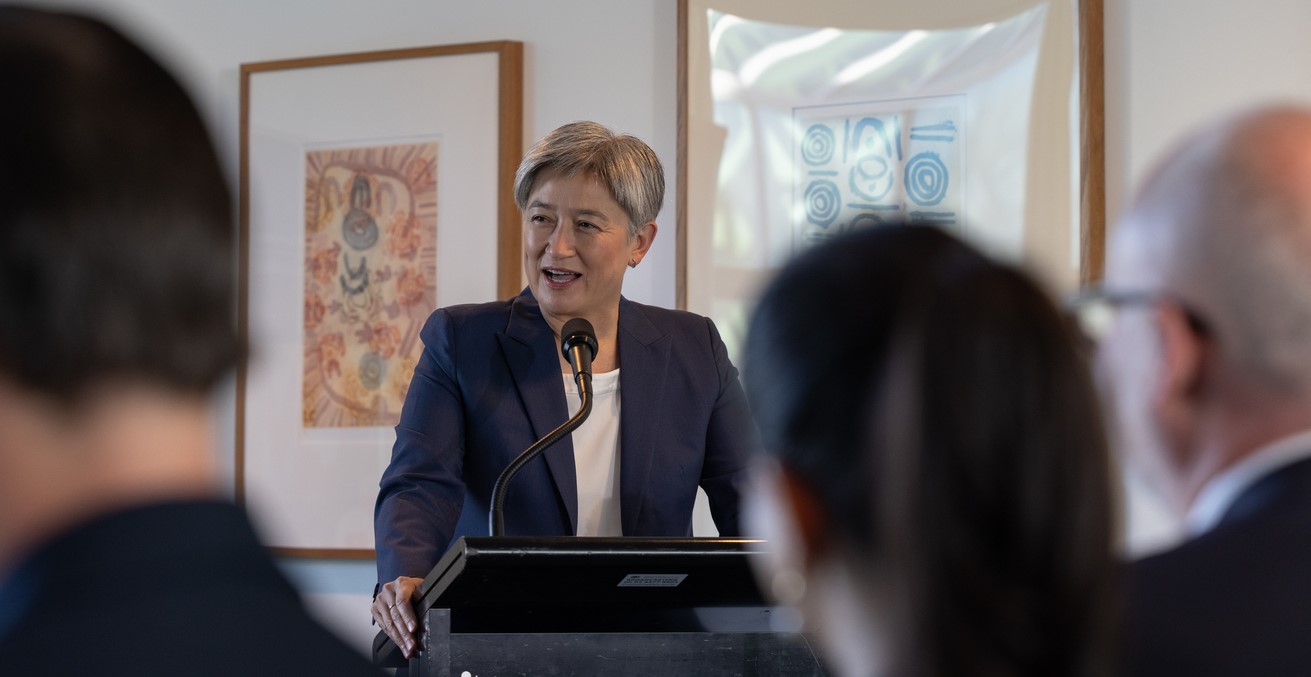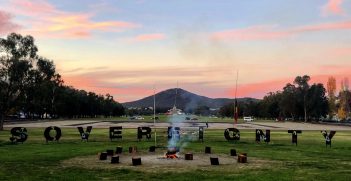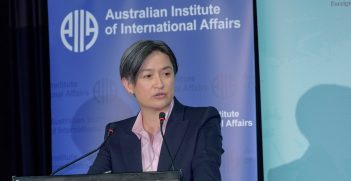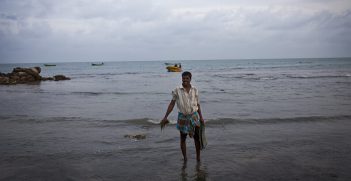Global Uncertainty Necessitates a Whole-of-Nation Approach to Foreign Policy

A new phrase is entering into Australia’s foreign policy lexicon. Just what a “whole-of-nation” approach to foreign policy entails, how it can be implemented, and the challenges it poses is the subject of a new paper that was released by the foreign minister last week.
Appeals to the mass mobilisation of national resources for foreign policy objectives are commonly equated with a wartime footing. Historically, times of global conflict have seen civilian resources – human and industrial – strategically deployed to support combat operations. This was no better evidenced than 1940s America and Britain which saw the full gamut of public and private resources dedicated to the war effort – a “roll up your sleeves” manta resonating across the populace.
It says something about the times we are living through that contemporary discussions regarding the enlistment of a range of private and public capabilities for foreign policy objectives can be found in a new phrase creeping into the foreign policy lexicon. The phrase “whole-of-nation” has found popularity within the highest echelons of the Australian government, with the prime minister invoking the idea at last year’s Shangri-La Dialogue, also in the context of discussing global stability and security. Similarly, key policy documents of recent times, including the 2023 Defence Strategic Review, have stressed the utility of a whole-of-nation approach to Australia’s foreign engagement, arguing its necessity given the strategic environment the nation is facing.
Just what a whole-of-nation approach is and how it can potentially be deployed is the topic of analysis of a new Asia-Pacific Development, Diplomacy & Defence Dialogue (AP4D) Options Paper that was launched by Foreign Minister Penny Wong at Parliament House last week. The linkages between whole-of-nation and global security were at the forefront of the foreign minister’s thinking. She commenced her speech by observing that Australia “face[s] the most complex strategic circumstances since the end of WWII” and that “business as usual isn’t enough to ensure and to assure our interests.”
At a minimum, a whole-of-nation approach implies that global engagement is not just done by a few government actors working in international affairs but is the role of a far wider constituency. It can involve groups and individuals working across business and investment, science and technology, education, sports, culture, media, and civil society. Added to this list are federal departments and national institutions as well as state, territory, and local governments.
While wartime efforts have provided some of the most cogent examples of when something akin to a whole-of-nation approach has been most visible, and, arguably, most beneficial, the AP4D paper presents more recent instances. These range from the response to the COVID-19 pandemic and Australia’s on-going efforts at sports diplomacy to leveraging international broadcasting capabilities that reach directly into people’s homes across the Asia-Pacific. As the paper argues, and as Minister Wong acknowledged, such examples help to demonstrate that cross-sector cooperation in foreign policy is already occurring, providing models and lessons that can be replicated.
The AP4D paper, based on over 100 consultations with individuals and organisations, found that whole-of-nation, like any nascent idea, is not without its challenges. The paper details barriers and trade-offs. As with many significant policy changes, the issue of how to move beyond positive sentiments – none of the respondents that AP4D spoke with said that Australia should not adopt a whole-of-nation approach – needs to be carefully considered.
One of the central barriers to advancing the whole-of-nation idea is convincing sectors beyond government as to why it is in their interests to be involved. Many industries may consider it an impediment to their businesses or view it as a way to direct their operations. Whole-of-nation language comes with risks of being perceived as a top-down instruction that centralises economic activity in government. Without clear communication of objectives and expectations – including what whole-of-nation does not mean – it risks being ignored.
Two of the most challenging issues concerning whole-of-nation are what it looks like in practice and who leads on its implementation. Practically, how are the diversity of Australia’s resources, assets, and capabilities — across both state and civil society – marshalled in a way that increases their productivity and effectively serves Australia’s foreign policy objectives? While these questions of themself are worthy of detailed standalone analysis, the AP4D paper provides initial guidance on how to put the vision into practice. Among its suggestions are the development of a strategy for consistently building support across the breadth of the Australian polity for Australia’s foreign policy and the establishment of mechanisms to bring external expertise into government policy development more easily and flexibly.
Ultimately, as the AP4D paper acknowledges, whole-of-nation is not an easy fix. It is not something for governments to latch onto as a substitute for doing things directly. Initially, it will involve more resources, not less – new systems, mechanisms, and policies. However, as Minister Wong said last week, the AP4D paper helps to take forward an important conversation. This is the start of a process. In an effort as expansive as a whole-of-nation approach cautious steps will now be needed to move beyond a business-as-usual approach to foreign policy. And in the spirit of whole-of-nation, the responses to advance this new approach will need to be inclusive, iterative, and involve a constituency beyond core international policy actors.
This article draws on AP4D’s report on What does it look like for Australia to take a Whole-of-Nation Approach to International Policy.
Dr Daniel Evans is a Senior Policy Analyst with AP4D. He has worked extensively across Melanesia, predominantly in the justice and governance fields.
This article is published under a Creative Commons License and may be republished with attribution.





